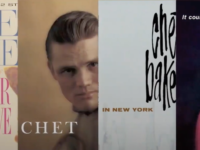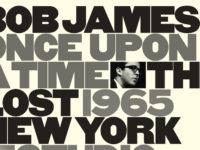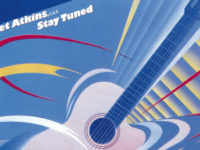A fresh new studio album from Chet Baker playing in peak form might be the least expected occurrence given that the legendary trumpet and vocalist giant of West Coast jazz hasn’t been with us for thirty-five years. But at long last, another testament to the wide and barely diminished appeal of Baker is now unveiled to the world.
Blue Room: The 1979 Vara Studio Sessions in Holland captures the trumpet icon some six years after his comeback, having regained his former form after his infamous late 60s incident where his teeth were knocked out. This double CD set covers two sessions from 1979 – one in April and another in November of that year – taped at Hilversum, the Netherlands for Dutch radio.
Zev Feldman, known for his acclaimed stewardship of archival jazz label Resonance Records, is putting out Blue Room under his new Jazz Detective label, which Feldman established in 2022 for releasing previously unissued treasures from jazz musicians both lauded and unsung. For only the second release under this label, Feldman again uses his magic touch in locating and bringing to the public superb recordings by some of jazz’s finest practitioners that were somehow forgotten and sat dormant and unreleased for decades. In this case, these tapes were brought to his attention by Frank Jochemsen, who in turn identified them based on a tip from the late radio producer Lex Lammen.
Despite battling his personal demons, Baker was ridiculously prolific in the studio during this time, having recorded eleven records in 1979 and ten more the following year. Naturally gifted, Baker could be this prolific and not lose anything in his interpretive skills, his velvet chops and that mellow, sweetly languid voice.
For the earlier occasion, Baker teams up with Phil Markowitz (piano), Jean-Louis Rassinfosse (bass) and Charles Rice (drums). The later session’s backing band was Frans Elsen (piano), Victor Kaihatu (bass) and Eric Ineke (drums). Rassinfosse had a long history with Baker, having served as one of his bassists from 1976-85. The others had a varying degree of experience playing with Chet, with some of them doing so for the first time with these recordings.
It didn’t matter how much or little time there was to find simpatico, as these performances came off uniformly well.
“Beautiful Black Eyes” is played as a bossa nova, showcasing Baker’s breezy demeanor and unblemished tone. When the pace picks up, he also picks up his gait, maintaining his cool demeanor and caressing that horn with lyrical lines that only someone with more than a passing acquaintance of jazz vocal can conjure.
Speaking of jazz vocal, his first appears on “Oh, You Crazy Moon,” and his smokey, unforced and intimate delivery that was melting hearts back in the 50s remains fully intact here. Likewise is his ability to follow up with trumpet articulations that are direct extensions of his singing. Markowitz’s piano asides adds a bit of punch and then for the final treat, Baker returns to scat.
“The Best Thing For You” is up tempo bop, and Baker shows no effort at all playing through the changes; to him, the faster tunes were just faster version of the ballads because the romanticism on his horn never leaves him. Taking his cue from the leader, Rassinfosse leaves behind a very lyrical bass solo.
Baker’s genius in his melodic development is his phrasing and working the spaces between the notes much as a great vocalist does and it’s evident on “Blue Room.” The straight-up blues “Down” cooks — actually it’s more like a nice simmer with everyone playing right in the crisp swing pocket assembled by Rice and Rassinfosse. It’s basically a jam, but a congenial one at that.
“Blue Gilles” is the only Baker original present here, and it begins with his trumpet alone. It’s almost startling to hear it unaccompanied and so exposed, it takes on a different character without accompaniment. When the trio joins him, he immediately latches onto the gentle swing. Baker’s note efficiency had always set him apart from the hot-blowing trumpeters and it really serves to give Miles Davis’ “Nardis” the sort of rendering it’s made for.
The November 9 sessions were shorter, both in overall length and the duration of each song. There was also a completely different backing band, as noted above. For “Candy,” Baker sings then scats, and after Elsen’s piano aside, plays his horn before returning to take on another verse. “Luscious Lu” is another slow-walking blues exercise, with a substantial bass presence from Kaihatu.
Melodies like “Old Devil Moon” are second nature to Baker, but he is also well-attuned to the backing band. That doesn’t come from a lot of experience playing with them, but from unfailing instincts from the leader and his colleagues quickly picking up on his approach.
There’s more to the story of Blue Room that can comfortably fit in this space but it’s all told in extensive accompanying essays written by Feldman, Jochemsen, Baker biographer Jeroen de Valk, trumpet greats Enrico Rava and Randy Brecker, sessions producer Edwin Rutten and recollections of those sessions from some of the musicians who participated.
Chet Baker’s Blue Room: The 1979 Vara Studio Sessions in Holland is now available in CD and download form. One place where you can procure it is from Bandcamp.
- Ches Smith Quartet – ‘Clone Row’ (2025) - May 30, 2025
- James Brandon Lewis Quartet – ‘Abstraction Is Deliverance’ (2025) - May 27, 2025
- Soft Machine – ‘Drop’ (1971, 2025 remaster) - May 21, 2025




